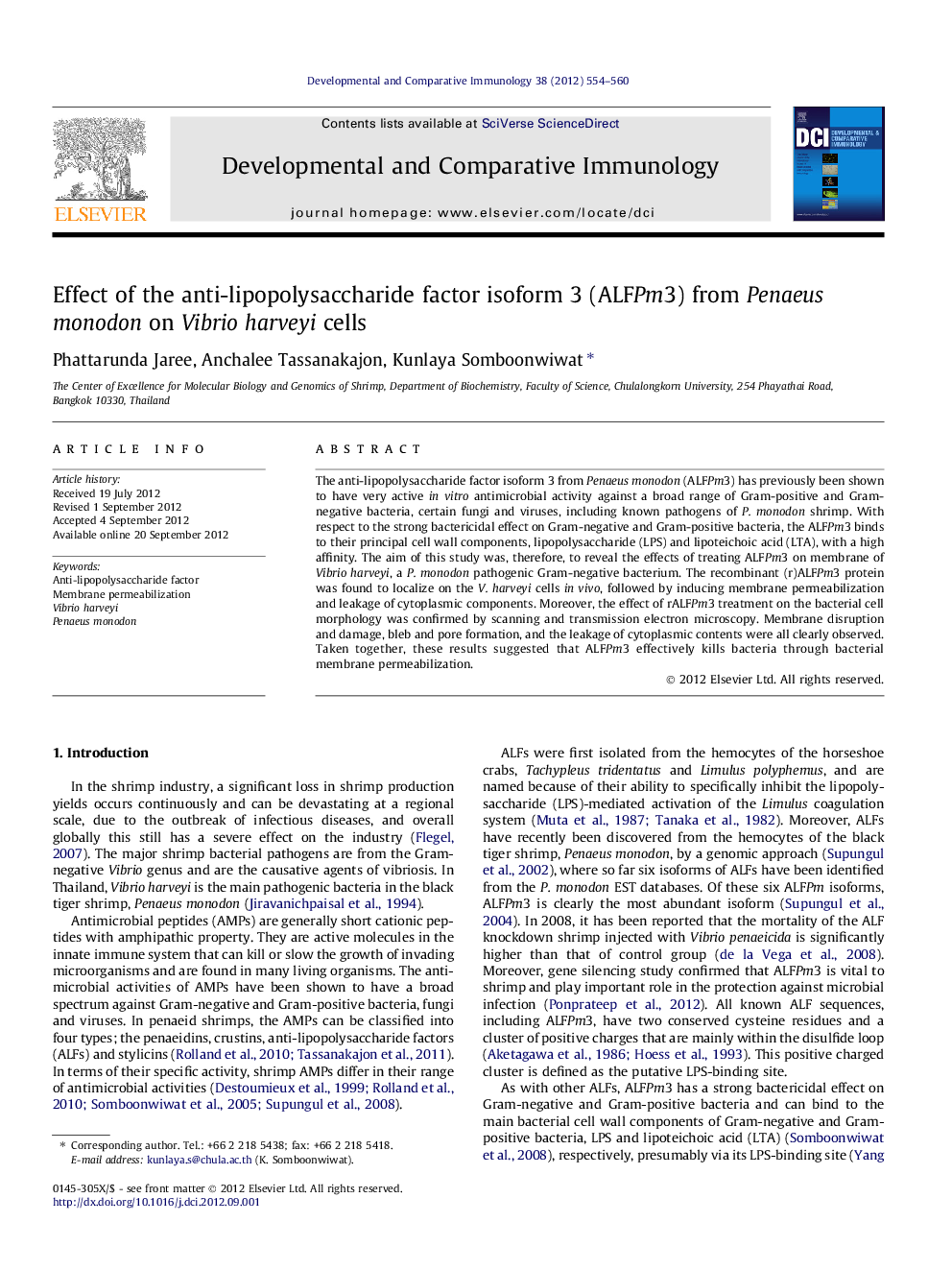| Article ID | Journal | Published Year | Pages | File Type |
|---|---|---|---|---|
| 2429477 | Developmental & Comparative Immunology | 2012 | 7 Pages |
The anti-lipopolysaccharide factor isoform 3 from Penaeus monodon (ALFPm3) has previously been shown to have very active in vitro antimicrobial activity against a broad range of Gram-positive and Gram-negative bacteria, certain fungi and viruses, including known pathogens of P. monodon shrimp. With respect to the strong bactericidal effect on Gram-negative and Gram-positive bacteria, the ALFPm3 binds to their principal cell wall components, lipopolysaccharide (LPS) and lipoteichoic acid (LTA), with a high affinity. The aim of this study was, therefore, to reveal the effects of treating ALFPm3 on membrane of Vibrio harveyi, a P. monodon pathogenic Gram-negative bacterium. The recombinant (r)ALFPm3 protein was found to localize on the V. harveyi cells in vivo, followed by inducing membrane permeabilization and leakage of cytoplasmic components. Moreover, the effect of rALFPm3 treatment on the bacterial cell morphology was confirmed by scanning and transmission electron microscopy. Membrane disruption and damage, bleb and pore formation, and the leakage of cytoplasmic contents were all clearly observed. Taken together, these results suggested that ALFPm3 effectively kills bacteria through bacterial membrane permeabilization.
► The rALFPm3 could localize on and inhibit growth of a shrimp bacterial pathogen, Vibrio harveyi. ► ALFPm3 induced bacterial membrane permeabilization and cytoplasmic content leakage. ► Many distinct signs of bacterial membrane damage were observed upon ALFPm3 treatment.
